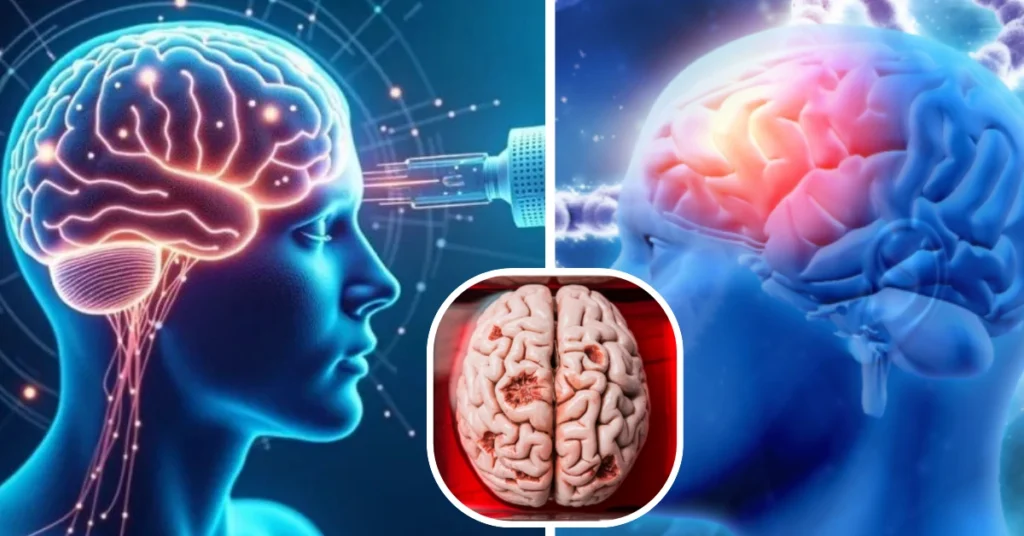Introduction to Neurological Diseases
Neurological diseases can significantly impact a person’s life, affecting everything from movement to cognition. These disorders arise when the nervous system—the brain, spinal cord, and nerves—encounters damage or dysfunction. With over 600 known neurological conditions, understanding DoctorHub360.com Neurological Diseases is critical for patients and caregivers alike.
At DoctorHub360.com, we recognize the need for accurate information and support in navigating these complex health issues. Whether you’re dealing with a specific diagnosis or seeking guidance on symptoms that concern you, our comprehensive guide offers insights into various DoctorHub360.com Neurological Diseases and their treatments. You can also explore other resources, such as TheJavaSea.me Leaks AIO-TLP, to stay informed about emerging trends in healthcare. Let’s delve into this intricate field together and empower ourselves with knowledge about what lies ahead.
Common Types of Neurological Diseases
Neurological diseases encompass a wide range of conditions that affect the nervous system. Some of the most prevalent include Alzheimer’s disease, which leads to memory loss and cognitive decline. Parkinson’s disease is another common disorder characterized by tremors and difficulty with movement.
Multiple sclerosis disrupts communication between the brain and body, causing various symptoms like fatigue and muscle weakness. Epilepsy manifests through recurrent seizures, affecting many aspects of daily life.
Stroke is a critical condition resulting from interrupted blood flow to the brain, leading to severe consequences if not treated promptly. Migraines are also notable; while often dismissed as simple headaches, they can be debilitating for those who experience them regularly.
Understanding these diseases can offer valuable insights into their treatment options and management strategies. Each condition presents unique challenges that require tailored approaches for care and support.
Symptoms and Diagnosis of Neurological Diseases
Neurological diseases often present a wide range of symptoms. These can vary significantly depending on the specific condition and the area of the nervous system affected. Common signs include headaches, dizziness, memory loss, and changes in mood or behavior.
Patients may also experience motor difficulties such as tremors or weakness. Sensory disturbances like tingling sensations or numbness are frequently reported as well.
Diagnosing neurological disorders can be complex. Medical professionals typically start with a detailed medical history and physical examination. Advanced imaging techniques like MRIs and CT scans play a crucial role in identifying structural abnormalities within the brain and spinal cord.
Neuropsychological tests can assess cognitive function to pinpoint areas impacted by disease processes. Accurate diagnosis is essential for effective treatment strategies tailored to individual needs.
Treatment Options for Neurological Diseases
Treatment options for neurological diseases vary depending on the specific disorder and individual patient needs. Medications often play a crucial role in managing symptoms. For instance, antiepileptic drugs help control seizures, while other medications can alleviate pain or improve mood.
Therapies such as physical therapy are essential for rehabilitation. They assist individuals in regaining strength and mobility after an injury or stroke. Occupational therapy focuses on enhancing daily living skills which can be invaluable.
In more severe cases, surgical interventions may be necessary. Procedures like deep brain stimulation have shown promise for conditions like Parkinson’s disease.
Emerging treatments include gene therapy and stem cell research, offering hope for those with previously untreatable conditions. These innovations could reshape how we approach neurological disorders in the future, providing new avenues of recovery and improved quality of life for patients everywhere.
How DoctorHub360.com Can Help
DoctorHub360.com serves as a vital resource for individuals navigating the complexities of neurological diseases. With a user-friendly interface, patients can easily access a wealth of information tailored to their specific needs.
The platform offers educational articles that cover various conditions and treatments comprehensively. Users can explore symptoms, emerging research, and innovative therapies available in the medical field today.
Furthermore, DoctorHub360.com connects users with specialists across different regions. This feature enables patients to seek second opinions or find experts who suit their unique circumstances.
Support groups are also highlighted on the site. These communities provide emotional support and shared experiences from others facing similar challenges.
By leveraging cutting-edge technology and expert insights, DoctorHub360.com empowers patients to take charge of their health journey effectively.
Tips for Managing and Coping with Neurological Diseases
Managing neurological diseases requires a multifaceted approach. Start by maintaining a structured daily routine. Consistency can provide stability in unpredictable circumstances.
Incorporate light physical activity into your day. Gentle exercises, like walking or stretching, help improve mobility and reduce stress. Mindfulness practices, such as meditation or yoga, can also enhance mental well-being.
A strong support network is crucial. Surround yourself with friends and family who understand your condition and can offer assistance when needed.
Nutrition plays an essential role too. A balanced diet rich in antioxidants may aid brain health while reducing inflammation.
Don’t hesitate to seek professional guidance from therapists or counselors specializing in neurological disorders. They can equip you with strategies to cope effectively with challenges that arise on your journey.
Future Research and Advancements in the Field of Neurology
The future of neurology is teeming with promise and innovation. Researchers are relentlessly exploring new avenues that could transform the landscape of neurological diseases, as highlighted on DoctorHub360.com Neurological Diseases. Advanced imaging techniques, such as functional MRI and PET scans, are enhancing our understanding of brain function at unprecedented levels.
Gene therapy is another area garnering attention. By targeting specific genetic mutations linked to conditions like Huntington’s disease or muscular dystrophy, scientists hope to develop more effective treatments tailored to individual patients’ needs.
Artificial intelligence (AI) in diagnostics shows great potential too. AI algorithms can analyze vast amounts of data quickly, leading to earlier detection and improved treatment protocols for various neurological disorders.
Furthermore, stem cell research holds the key to regenerative medicine. Scientists aim to repair damaged neural pathways and restore lost functions in patients suffering from severe injuries or degenerative diseases like multiple sclerosis.
As we look ahead, collaboration among researchers worldwide will play a vital role in accelerating discoveries. With continued investment in research funding and technological advancements, there’s hope for better therapies that enhance quality of life for those living with neurological diseases.
Stay connected with DoctorHub360.com Neurological Diseases for updates on these exciting developments and insights into managing your health journey effectively.
Looking for more PDFs to explore? Check out In the Likely Event PDF Free Download.







